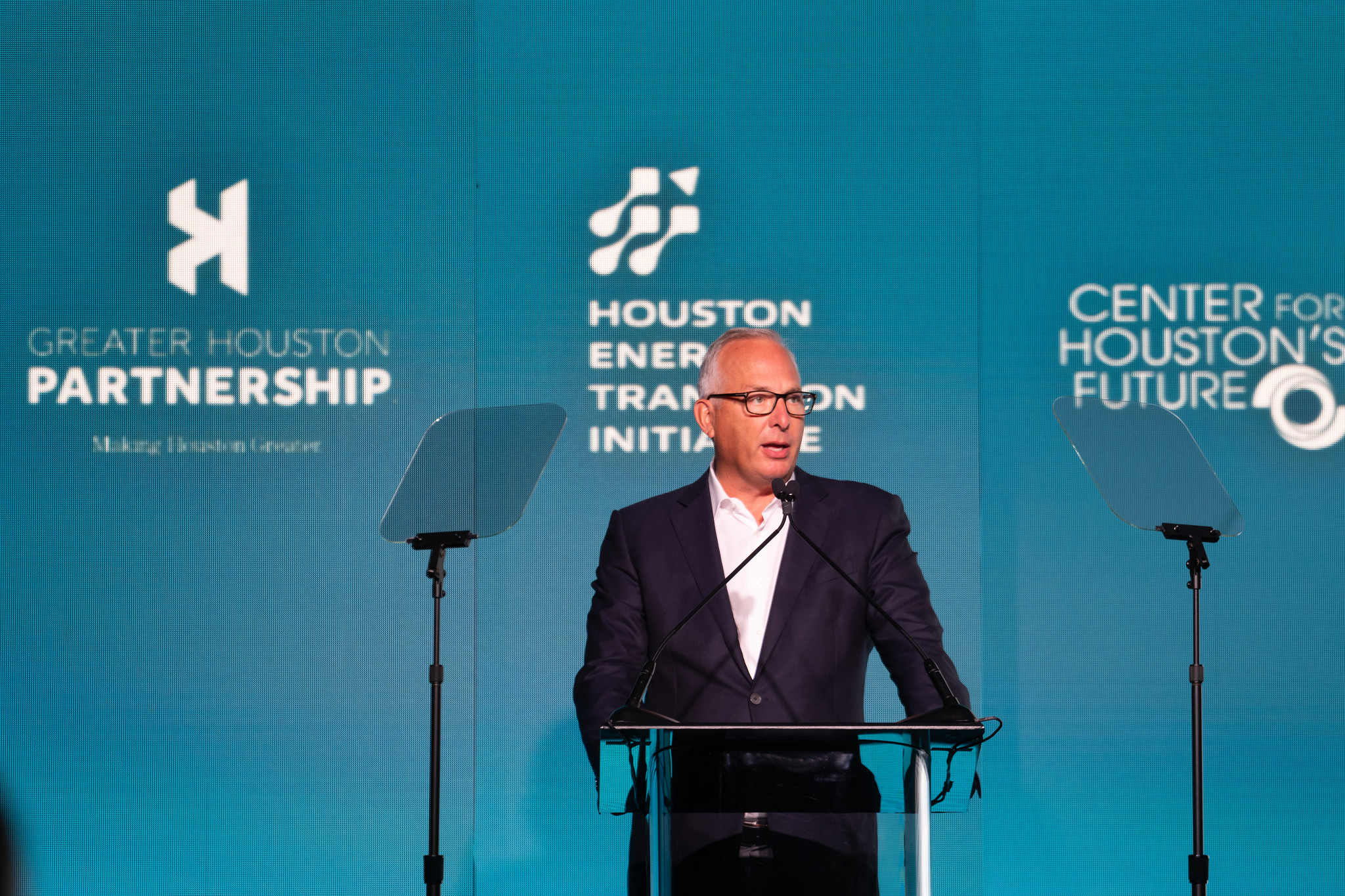Leaders Provide Houston Energy Transition Progress Report at Conference
Published Jun 30, 2022 by A.J. Mistretta
Leaders of the Houston Energy Transition Initiative (HETI) offered an update on the initiative’s progress and hosted a keynote address from a national energy policy expert during day two of the Greater Houston Partnership’s Future of Global Energy, presented by Chevon, conference this week.
One year after its launch, HETI has brought together 18 leading companies to help steer the initiative’s agenda and established four sector-specific, industry-led working groups focused on carbon capture use and storage (CCUS), hydrogen, industrial decarbonization and capital formation.
“These first four working groups align with Houston’s strengths, leverage our incumbent industry’s assets, expertise and capability as well as the regions’ existing infrastructure, and they aim to address significant sources of emissions,” said Bobby Tudor, Chair of HETI and CEO of Artemis Energy Partners.
Tudor said HETI is raising the profile of Houston as both an attractive and sustainable urban destination and the epicenter of low-carbon energy technology development and deployment. “Startups and established energy companies alike see Houston as the place where low-carbon energy solutions will scale and be integrated into the existing energy infrastructure,” he said.
The Partnership initiated its energy transition work with the launch of organization’s New Energy Taskforce in 2018. Tackling the energy transition was the primary focus for Tudor as chair of the Partnership in 2020 and HETI officially launched in June 2021 along with a strategy for how Houston can lead the global transition to a low-carbon, energy abundant future.
Partnership President and CEO Bob Harvey offered perspective on what the Houston region stands to gain as a leader in the transition, as well as the global imperative. “We need to invest in new sources of energy and in decarbonization technologies that provide humans with affordable, reliable and sustainable energy to power our future,” he said.
Day two of the conference, presented by Chevron, also featured a keynote address from Marty Durbin, President of the Global Energy Institute and Senior Vice President of Policy at the U.S. Chamber of Commerce. Durbin discussed the impact of the energy transition on the nation as a whole as well as the growing buy-in from the business community.
“From the U.S. Chamber standpoint, this is about maintaining, defending, and enhancing the global competitiveness of U.S. businesses as we work through the energy transition,” Durbin said. He added that ambitious goals around addressing climate change and achieving the energy transition will only be met by developing the necessary technology and adopting new policies.
“It’s so important that the people in this room tell the good story about progress in energy transition. We need to be ambassadors and educate others around what this industry is willing to do and is already doing” to address climate change, Durbin said.
Echoing that sentiment, HETI Executive Director Jane Stricker said Houston needs to continue to cultivate opportunities to share what this region is doing right and how important the energy industry is and will continue to be to both our regional and global economy.
“We will be successful when we are recognized as a world leader in key technologies like CCUS, hydrogen, advanced plastics recycling, and energy storage, while also creating an environment that attracts and grows companies in all energy value chains,” Stricker said.
“Two of Houston’s greatest strengths are its diversity and the willingness of Houstonians to come together to tackle big challenges,” said Tudor. “It is the combination of these strengths that will ensure our continued economic success through the transition.”
Learn more about the Houston Energy Transition Initiative and check back for a recap on day three of the conference.
 The Houston Report
The Houston Report




















